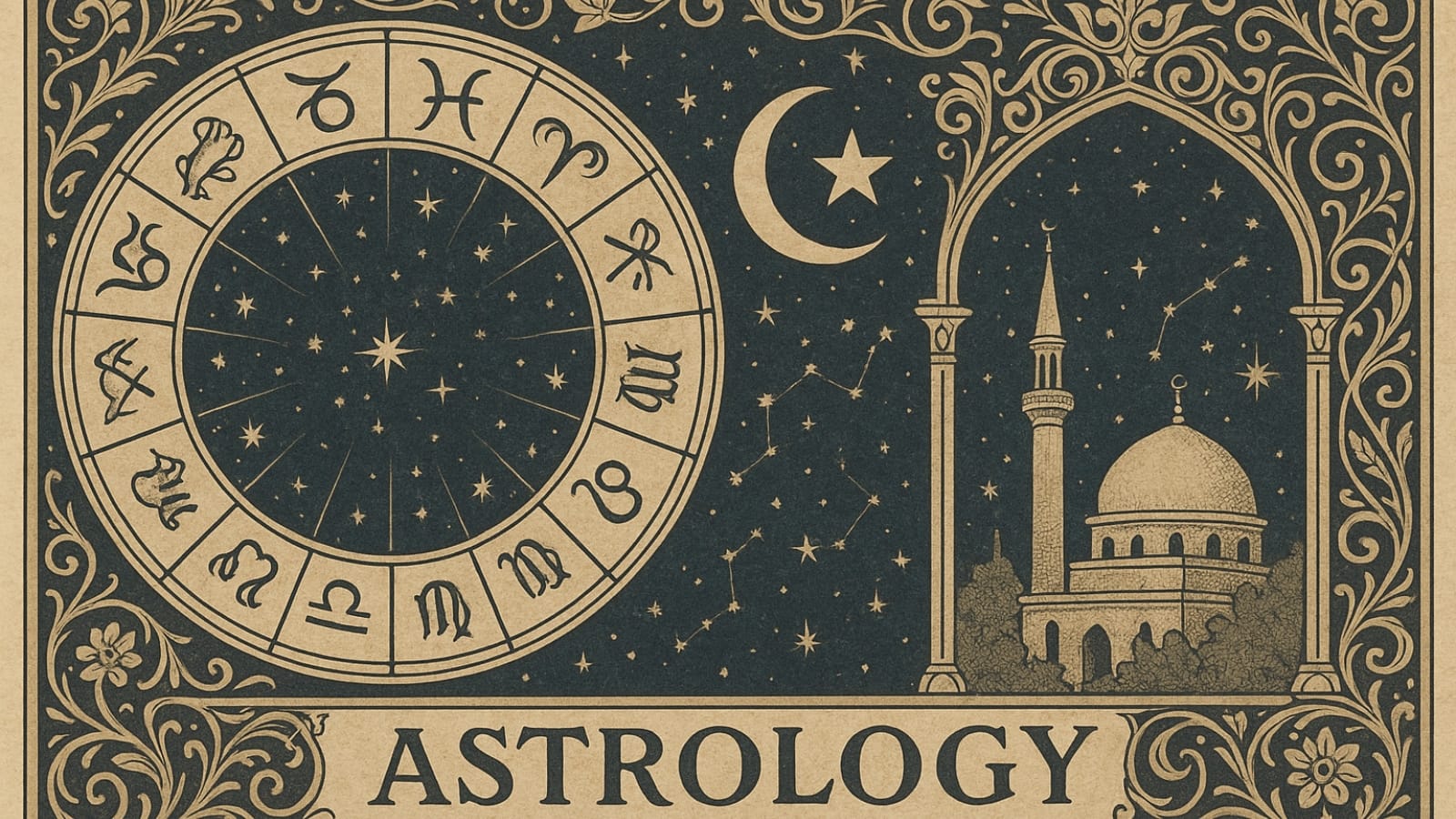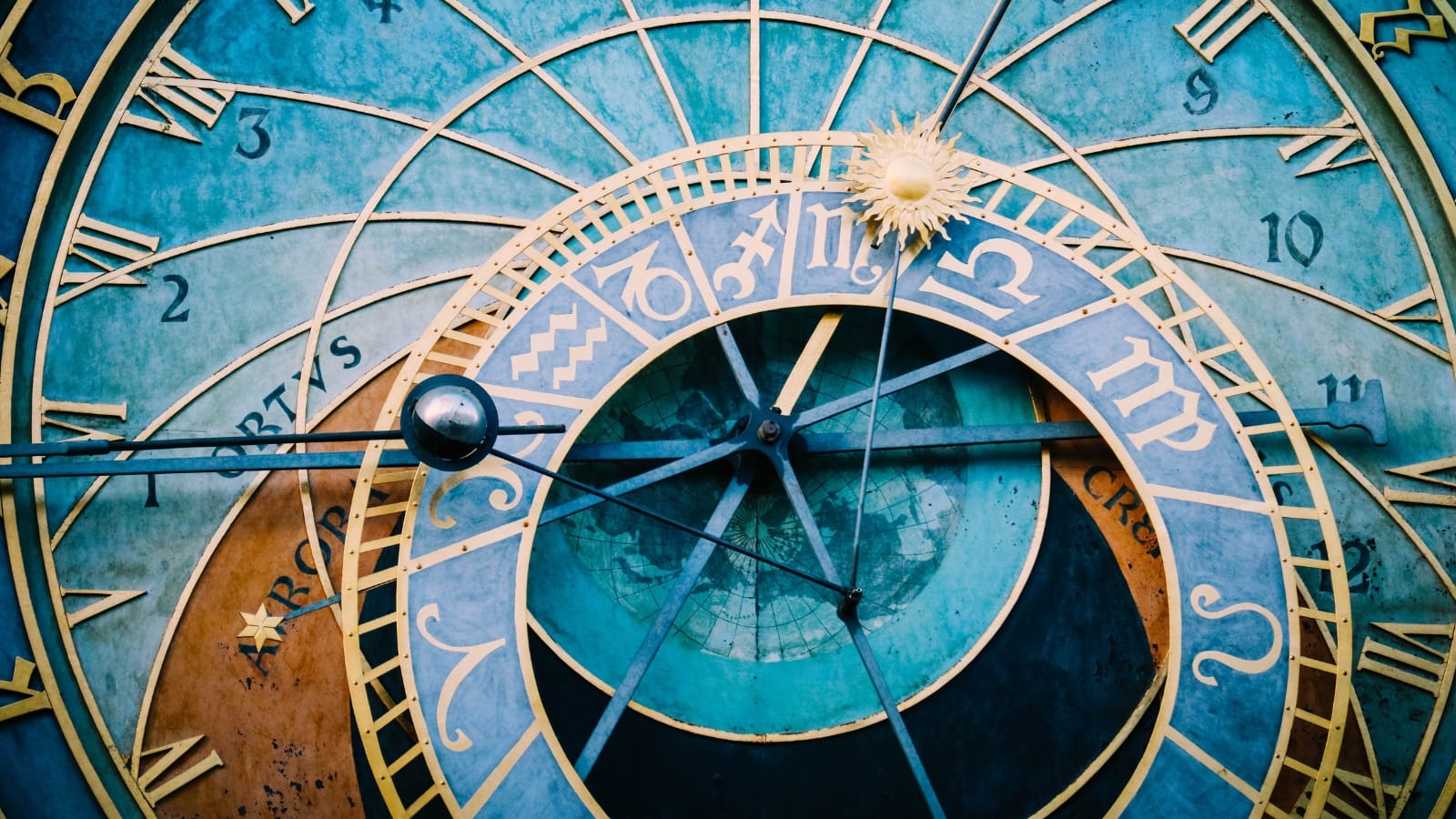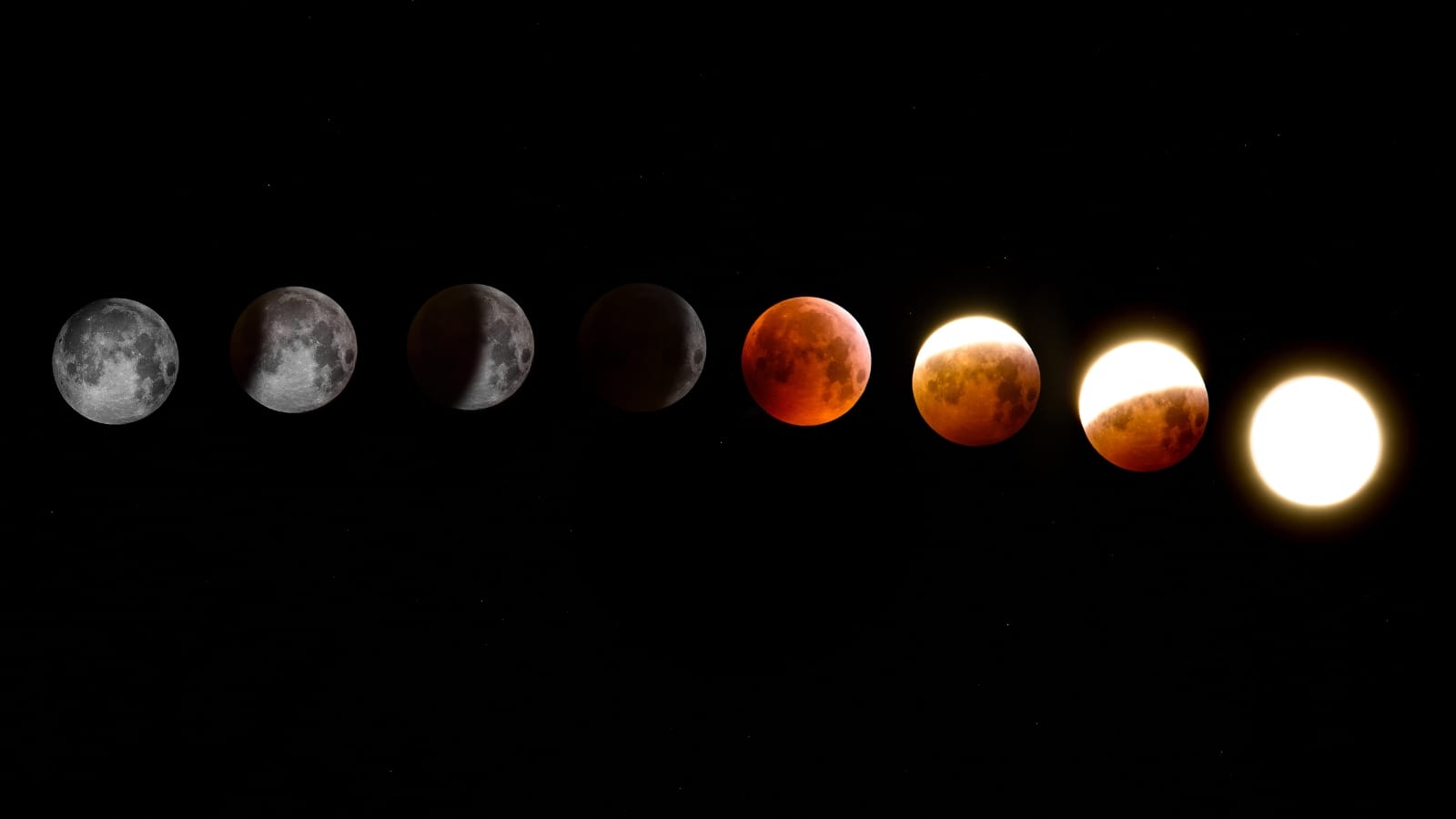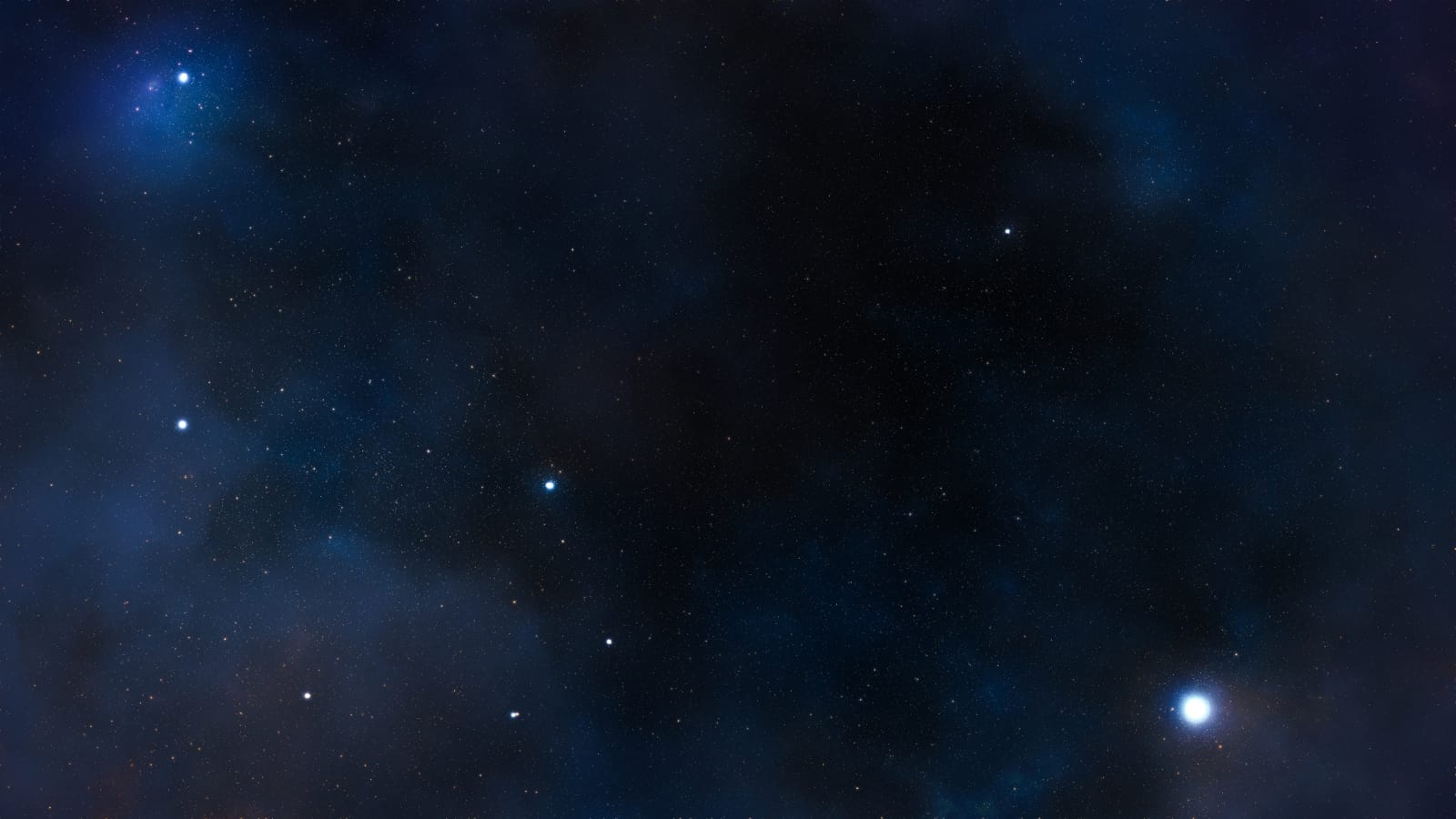Islam & Astrology: Is Astrology Haram? Yes and No

Most Muslims today consider astrology to be completely haram (forbidden), often dismissing it as mere superstition.
But this rejection comes from a common misunderstanding.
Astrology is not about predicting the future or believing the stars control our lives.
It's about recognizing that the skies, stars, and planets were created by Allah as signs for reflection and understanding.
There's a big difference between turning to stars for answers - which Islam forbids - and simply observing their influence on our emotions, behaviors, and daily lives.
The Quran encourages us to reflect on the universe as a way to understand ourselves and Allah’s creation.
Table of Content
The Sky and Stars are Signs of Allah’s Creation

The Qur’an frequently encourages us to look at the sky as a source of reflection and wisdom:
“Indeed, in the creation of the heavens and the earth, and the alternation of the night and the day, are signs (ayat) for those of understanding.”
(Qur'an 3:190)
The sun, moon, and stars are described as ayat, signs, meant to guide us toward deeper thought and understanding.
These celestial bodies are part of Allah’s creation, intentionally placed as tools for reflection.
Natural Influence vs. Superstition
Think about how the moon influences ocean tides, or even our own sleep patterns and moods.
It is not superstition; it's a natural, observable phenomenon.
The universe is interconnected, meaning that celestial bodies naturally impact life on Earth in subtle yet meaningful ways.
Islam clearly differentiates between acknowledging this natural influence and wrongly believing that stars have divine powers or control our fate.
Observing the stars as part of Allah’s creation is encouraged, but worshipping them or relying on them for answers is forbidden.
In short, a balanced Islamic approach respects and appreciates celestial influence, without mistakenly assigning it as divine power.
Astrology is an Archetypal System, Not Fortune-Telling

In many modern Islamic circles, astrology is automatically dismissed as fortune-telling, a practice clearly forbidden in Islam.
But this misunderstanding erases centuries of nuanced scholarship and spiritual engagement with the stars.
Not all astrology aims to tell the future.
In fact, much of it historically served as a symbolic language, a way to understand divine order, human psychology, and the inner workings of the soul.
The Qur’an warns against seeking knowledge of the unseen (ghayb) through forbidden means, such as divination and soothsaying.
But it does not forbid observation of natural patterns, nor the reflection on how these patterns can be mirrors for inner experience.
The Zodiac is an Archetype, Not Prophecy
The twelve signs of the Zodiac - used in Hellenistic, Persian, Indian, and Arab traditions - were not originally tools for fortune-telling, but for understanding the temperaments of human beings.
They represent a system of archetypes which means fundamental energies or “types” that exist in nature and in the soul.
This is similar to the Islamic idea of the nafs (self) and the diverse dispositions (mizaj) found among people.
Each Zodiac sign is an archetype of human potential:
- 🔥 Fire signs (Aries, Leo, Sagittarius): action, passion, divine will (irada).
- 🌱 Earth signs (Taurus, Virgo, Capricorn): stability, service, patience (sabr).
- 🌬️ Air signs (Gemini, Libra, Aquarius): intellect, justice, discernment (hikmah).
- 💧 Water signs (Cancer, Scorpio, Pisces): emotion, depth, inner knowledge (ma‘rifa).
These signs don’t cause behavior, they symbolize ways that divine attributes (such as mercy, justice, strength) are reflected through creation.
Archetypes and Islamic Psychology
The framework of astrology can be compared to early Islamic understandings of temperaments (hot/cold, moist/dry), and later Sufi models of the self.
Just as the Enneagram or Jungian archetypes help modern people explore their personalities, the Zodiac functions similarly as a system of symbols, not certainties.
This is similar to a key Islamic concept: that knowledge of the self (ma‘rifat al-nafs) leads to knowledge of the Divine (ma‘rifat Allah).
In this context, astrology becomes a mirror, not a map.
Astrology as a Symbolic Language in Sufi Thought
In Islamic mysticism, particularly within Sufi traditions, astrology was understood not as fortune-telling, but as a symbolic language revealing spiritual truths.
- Al-Ghazali, one of Islam’s greatest theologians, taught that the heavens and the earth reflect one another like two mirrors. The stars, in his view, are letters in a cosmic language, signs to be read carefully, not powers to be worshipped.
- Ibn Arabi, the renowned Sufi metaphysician, saw astrology as a ladder to divine knowledge. For him, observing the heavens was not about predicting worldly events, but about deepening one’s understanding of the self and ascending toward spiritual realization.
In this Sufi perspective, astrology served as a tool for inner awakening, not external control.
Muslim Scholars and Their Views on Astrology
The Islamic Golden Age did not treat astrology as an enemy of Islam, it engaged with it critically and spiritually. Scholars such as:
- Al-Biruni (973–1050 CE), a polymath who studied astronomy, astrology, and their effects on agriculture and health.
- Al-Kindi (801–873 CE), who wrote On the Judgement of the Stars and emphasized the symbolic, non-superstitious aspects of celestial influence.
- Ibn Arabi (1165–1240 CE), the great Sufi metaphysician, who regularly employed astrological symbols as metaphors for the soul’s journey and divine realities.
The stars were part of Allah’s book of signs, meaningful not because they dictate fate, but because they reflect inner states and cosmic wisdom.
The Sky Affects Us and That’s Okay

Have you ever felt extra emotional during a full moon?
Or noticed how everything seems to go a little wrong (emails, travel, conversations) during certain times of the year?
You’re not imagining things.
For thousands of years, people have paid attention to how the sky affects our mood, our energy, and even big world events.
And Islam is no exception.
The Qur’an itself tells us to watch the sky and learn from it.
The sun, moon, and stars are signs from Allah, not random decorations, but part of the balance of creation.
“They ask you about the new moons. Say, ‘They are measurements of time for the people and for Hajj.’”
(Qur'an 2:189)
Here are some examples of everyday celestial influences on us and our lives:
1. Full Moon Feelings
People often feel more sensitive, restless, or emotionally intense during the full moon.
Research backs this up: full moons can disrupt sleep, raise tension, and even affect hospital visits.
Islam actually recommends fasting during the full moon days of each month - Ayyam al-Beed (13th, 14th, and 15th) - a beautiful way to stay grounded when emotions might be running high.
2. Mercury Retrograde
This modern concept sounds mystical, but it’s actually based on real astronomy.
Mercury looks like it’s moving backwards in the sky a few times a year.
During these times, people often report communication breakdowns, travel delays, or tech glitches.
It’s not magic, it’s a pattern.
You don’t need to fear it.
Just be more mindful and patient when things feel “off.”
3. Big Planetary Alignments
When several planets line up, history has shown it often coincides with major changes in the world such as revolutions, breakthroughs, or emotional shifts in whole communities.
Again, it’s not about predicting the future, it’s about noticing patterns in how humanity moves with the rhythms of the universe.
Is Astrology Haram in Islam?
Far from rejecting astrology outright, many scholars during the Islamic Golden Age engaged deeply with the study of the stars, while maintaining firm boundaries aligned with Islamic belief.
- Abu Maʿshar al-Balkhi, one of the most influential astrologers of the Abbasid era, wrote the Kitab al-Madkhal al-Kabir (The Great Introduction), a foundational work explaining planetary movements and their potential influences on the natural world, not human fate, but environmental and social rhythms.
- Al-Biruni, a towering scholar in astronomy and physics, critiqued some superstitious aspects of astrology, but still acknowledged the value of studying the heavens to better understand natural phenomena and the interconnectedness of creation.
Their work shows that Islamic civilization, at its height, approached astrology with intellectual rigor, spiritual caution, and scientific curiosity, not blind acceptance, nor blanket condemnation.
Islam is very clear:
- It’s okay to observe the stars and reflect on how they can affect your energy or emotions.
- It’s not okay to use the stars to predict your future or claim to know your fate.
The stars can remind us of Allah’s wisdom.
But they don’t replace it.
A More Balanced Interpretation of Astrology in Islam

Not everything that mentions the stars is haram.
Not everything astrological is superstitious.
Islam teaches balance, and that includes how we think about the skies.
The key is how we engage with celestial knowledge. It can either distract us from faith… or deepen it.
Here are four guiding principles for using astrology in a way that aligns with Islamic values:
- The stars are Allah’s creation.
They weren’t put there by accident. The Qur’an says they are signs for those who reflect. - Astrology as a tool for self-understanding.
Archetypes like fire, earth, air, and water signs can help us understand different temperaments and emotional patterns - not to box people in, but to know ourselves better. - Celestial energy influences us, but doesn’t control us.
Just like the moon pulls the tides and affects sleep, other planets might influence how we feel or interact. But they don’t decide our destiny - only Allah does. - It’s about reflection, not prediction.
Using astrology to observe and reflect is fine. Using it to determine your fate or make major life decisions instead of praying and trusting Allah? That’s where the line is crossed.
How Can You Use This Knowledge?
Here are some ways Muslims can ethically explore celestial rhythms:
- Use the lunar calendar.
Track your mood and energy with the phases of the moon. Fasting on full moon days (13th–15th lunar days) is both a sunnah and a calming practice. - Learn about your temperament.
Are you fiery, grounded, airy, or deeply emotional? Reflecting on archetypes can help you work with your strengths and understand your challenges, with the goal of refining your character (tazkiyah). - Plan for rest and reflection during intense celestial periods.
Like full moons, eclipses, or retrogrades. Instead of fearing these times, treat them as invitations to slow down, make dhikr, journal, or pray. - Align with spiritual cycles, not predictions.
Use the stars to sync with natural rhythms, not to predict the future. Allah holds the future. The stars just whisper reminders.
Islam is not anti-astrology.
It’s anti-false certainty, anti-fortune telling, anti-worship of anything but God.
The sky was created by Allah, so don’t fear it. Learn from it.
Let it remind you that everything in creation, including you, is part of something vast, intentional, and divine.
Final Thoughts
We live in a time where astrology is either blindly rejected or blindly followed.
But Islam calls us to something deeper: discernment.
Not everything written in the stars is false and not everything should be believed without question.
The Qur’an invites us again and again to reflect on the heavens:
“And He has subjected to you the night and the day, and the sun and moon, and the stars are subjected by His command. Indeed, in that are signs for people who reason.”
(Qur’an 16:12)
The stars are not there to control us.
They’re not fortune-tellers or false gods.
But they are part of Allah’s creation.
And as with all creation, they hold meaning - if we are willing to look with humility and awareness.
Celestial wisdom is not about predicting what will happen.
It’s about understanding the moment you’re in.
It’s about seeing yourself as part of a much bigger picture, one designed by the Creator Himself.
So next time you see the full moon rise or hear talk of a planetary shift - pause for a moment.
Don’t be superstitious. Don’t be dismissive either.
Instead, be curious. Reflect. Ask:
What is this moment inviting me to feel, to learn, to become?
How can I move in rhythm with the sky, without forgetting who holds the universe in His hands?

